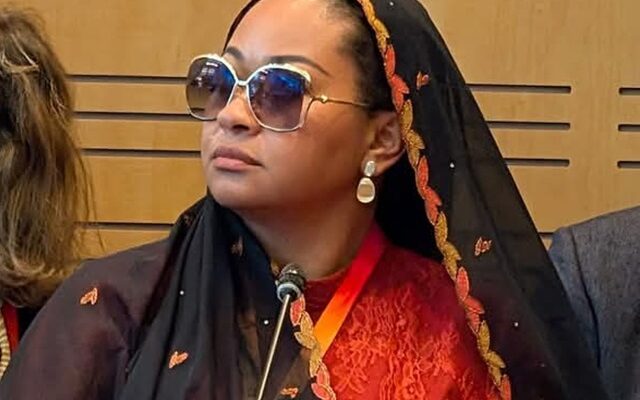As a concerned citizen of Kogi Central Senatorial District, I am compelled to ask a difficult but necessary question: Is Senator Natasha Akpoti-Uduaghan truly representing the interests of her constituents, or is she becoming a weapon fashioned against them?
Since her emotional outburst in the Senate chamber on February 20, 2025, over seat reallocation, Senator Akpoti-Uduaghan has engaged in an aggressive media campaign, one that appears more focused on personal vendettas than public service. She has not only leveled a series of damaging and often unsubstantiated allegations against the Senate and its leadership, particularly Senate President Godswill Akpabio, but has also dragged these accusations beyond the shores of Nigeria to international media platforms such as the BBC and CNN.
But we must ask: To what end?
Her interviews, ranging from Berekete TV with Ordinary President Ahmed Isa, to Arise TV and Channels TV, have evolved from complaints over legislative protocol to shocking accusations of assassination plots and sexual harassment. She also took her claims to the Inter-Parliamentary Union (IPU), alleging a culture of sexual misconduct in the Nigerian Senate. She portrayed it as a “coven of sexual predators with sustained penile erection”, a notion as sensational as it is scandalous.
Is this how a lawmaker defends the dignity of her office and the integrity of her constituency, or is this a calculated campaign of defamation designed to discredit not only a political opponent, but the institution she swore to uphold?
Senator Akpoti-Uduaghan’s disregard for judicial authority further deepens concern. On April 4, 2025, Justice Binta Fatima Nyako of the Federal High Court, Abuja, issued an order barring all parties from commenting publicly on the ongoing legal matter between Senator Akpoti-Uduaghan and Senate President Akpabio. In spite of this, the senator granted a podcast interview on May 30, 2025, doubling down on her accusations, including an ill-defined allegation of “sexual harassment,” alleging that Senator Akpabio pressured her to solicit kickbacks from Ministers and heads of agencies.
How seriously can such grave allegations be taken when they are flung around casually, without concrete evidence, and in direct violation of a court order?
This is not the first time the senator has openly disregarded authority. At a time when the Kogi State government had placed a security-based restriction on public gatherings, Senator Akpoti-Uduaghan stormed Ihima community, climbed a podium, and accused former Governor Yahaya Bello of plotting to assassinate her. Is this behavior befitting of a public officeholder or symptomatic of political recklessness?
Even more troubling is her apparent isolation from wise counsel. Where are the voices of reason within her inner circle? What role does her husband (himself a respected traditional ruler in Delta State) play in steering her away from the dangerous path of political self-destruction?
One must also consider the reputational damage her actions have inflicted on Kogi Central. Rather than celebrating legislative achievements or community development, constituents are now forced to defend themselves against whispers and mockery in national and international forums. Is this the kind of representation we aspired for?
The Federal Government, citing Section 391 of the Penal Code (CAP 89, LFN 1990), has accused Senator Akpoti-Uduaghan of making imputations with intent to harm the reputation of others. If found guilty under Section 392, the consequences could be grave.
However, the senator has a golden opportunity to clear her name. If indeed she possesses the damning evidence she claims, the courtroom, not the television studio, is the rightful place to present it. Anything less would suggest that her outbursts are not about justice or accountability, but political theater at the expense of the very people she was elected to represent.
In all these, it is time for Senator Natasha Akpoti-Uduaghan to choose: Will she be a champion for Kogi Central, or a liability? Will she defend the truth with facts, or continue to seek sympathy through sensationalism? The answers may not only determine her political future but also shape the reputation of a constituency now caught in the crossfire of personal ambition and institutional integrity.
– Shaibu Ajanaku wrote from Kogi state.




